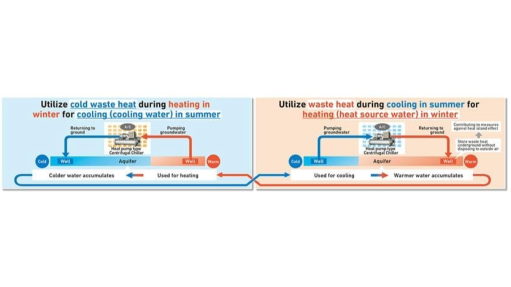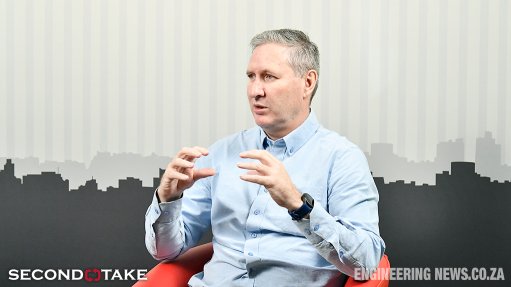Strategic training vital



SUSTAINED EFFORTS The future of South Africa’s infrastructure depends on the sustained efforts to foster a skilled, innovative and adaptable engineering workforce
FRIEDRICH SLABBERT This commitment to lifelong education is critical in an industry where technological and methodological advancements are frequent and rapid
As South Africa continues to invest in its infrastructure, the role of institutions such as civil engineering industry body the South African Institution of Civil Engineering (SAICE) in providing high-quality training will remain pivotal.
The future of South Africa’s infrastructure depends on the sustained efforts of organisations such as SAICE to foster a skilled, innovative and adaptable engineering workforce, says SAICE 2025 president-elect Friedrich Slabbert, who adds that through SAICE’s comprehensive training programmes and strategic collaborations, the industry body not only enhances the capabilities of individual engineers but also contributes significantly to the country’s enhanced engineering skills.
In recognising the pressing need for skilled professionals in the roads and bridges construction sector, SAICE has implemented several robust training programmes aimed at equipping engineers with the necessary skills to meet the country’s infrastructure demands.
The range of training programmes is designed to enhance both the technical and managerial skills of civil engineers, and includes workshops, seminars and courses that cover various aspects of civil engineering, from the fundamentals to advanced topics.
One of the key training initiatives is the continuing professional development (CPD) programme, which Slabbert says ensures that engineers remain updated with the latest industry standards and technological advancements.
Additionally, SAICE offers specialised training programmes that cater to different stages of an engineer’s career. From young graduates entering the workforce, to experienced professionals seeking to refine their skills, Slabbert notes that SAICE’s training portfolio is designed to support career-long learning.
“This commitment to lifelong education is critical in an industry where technological and methodological advancements are frequent and rapid,” he states.
To amplify the impact of its training programmes, SAICE collaborates with academic institutions and industry stakeholders.
These partnerships facilitate the exchange of knowledge and resources, fostering an environment conducive to learning and professional growth, says Slabbert.
For instance, SAICE’s collaboration with universities enables the development of tailored training modules that address specific industry needs, and this synergy between academia and industry ensures that the training provided are both relevant and practical.
SAICE also works closely with private-sector companies and government agencies to identify emerging trends and skill requirements.
This proactive approach allows SAICE to adapt its training programmes to meet the evolving demands of the industry, says Slabbert, who explains that by maintaining a close connection with industry leaders and policymakers, SAICE ensures that its training initiatives remain aligned with national infrastructure goals.
However, South Africa faces a significant challenge in terms of the skills gap across age distribution, where experienced engineers who will leave the industry soon need to provide mentoring to younger engineers to take up more senior positions in the engineering sector.
SAICE’s training programmes are aimed to address this by developing a pipeline of skilled engineers who can meet the country’s infrastructure needs. The institution’s commitment to continuous learning and professional development plays a crucial role in bridging the skills gap.
“The skills shortage in our sector is a pressing issue that needs to be addressed urgently. Through our comprehensive training programmes, we are not only enhancing individual careers but also ensuring the sustainability and growth of the entire engineering sector,” Slabbert emphasises.
Further, a significant focus of SAICE’s training programmes is integrating new technologies and innovative practices in training and mentoring in civil engineering.
By incorporating these topics into its training programmes, Slabbert says SAICE ensures that engineers are well-prepared to leverage engineering skills - knowledge plus experience - in their projects.
He further highlights the importance of technology integration in training programmes, noting that incorporating advanced technologies into training ensures that engineers are not only competent in traditional methods but are also adept at using “cutting-edge tools and techniques” that drive efficiency and sustainability in infrastructure projects.
The inclusion of sustainability topics is particularly noteworthy as the industry moves towards greener and more environment-friendly practices, he adds, referring to SAICE’s commitment to teaching sustainable engineering practices as reflecting a broader global trend towards reducing the carbon footprint of construction projects, and enhancing the resilience of infrastructure against climate change.
Economic Impact & Skills Shortage
The impact of SAICE’s training programmes extends beyond individual skills enhancement to broader economic development, Slabbert tells Engineering News.
He explains that by equipping engineers with the skills needed to execute complex infrastructure projects, SAICE contributes indirectly to job creation within the construction sector as these projects, in turn, drive economic growth by improving, for example, transportation networks, which are vital for trade and mobility.
Notable examples are the extensive road maintenance and upgrade projects currently under way in various provinces, he highlights.
Slabbert states that these projects not only improve road safety and connectivity but also create numerous job opportunities for local communities.
“The training provided by SAICE is aimed to equip engineering practitioners to execute projects efficiently and to high standards, maximising projects’ economic benefits,” he notes.
Looking ahead, Slabbert says SAICE plans to expand its training programmes to include more digital learning options, making it easier for engineering practitioners across the country to access training material.
This move is expected to further enhance the reach and effectiveness of SAICE’s training initiatives.
Comments
Press Office
Announcements
What's On
Subscribe to improve your user experience...
Option 1 (equivalent of R125 a month):
Receive a weekly copy of Creamer Media's Engineering News & Mining Weekly magazine
(print copy for those in South Africa and e-magazine for those outside of South Africa)
Receive daily email newsletters
Access to full search results
Access archive of magazine back copies
Access to Projects in Progress
Access to ONE Research Report of your choice in PDF format
Option 2 (equivalent of R375 a month):
All benefits from Option 1
PLUS
Access to Creamer Media's Research Channel Africa for ALL Research Reports, in PDF format, on various industrial and mining sectors
including Electricity; Water; Energy Transition; Hydrogen; Roads, Rail and Ports; Coal; Gold; Platinum; Battery Metals; etc.
Already a subscriber?
Forgotten your password?
Receive weekly copy of Creamer Media's Engineering News & Mining Weekly magazine (print copy for those in South Africa and e-magazine for those outside of South Africa)
➕
Recieve daily email newsletters
➕
Access to full search results
➕
Access archive of magazine back copies
➕
Access to Projects in Progress
➕
Access to ONE Research Report of your choice in PDF format
RESEARCH CHANNEL AFRICA
R4500 (equivalent of R375 a month)
SUBSCRIBEAll benefits from Option 1
➕
Access to Creamer Media's Research Channel Africa for ALL Research Reports on various industrial and mining sectors, in PDF format, including on:
Electricity
➕
Water
➕
Energy Transition
➕
Hydrogen
➕
Roads, Rail and Ports
➕
Coal
➕
Gold
➕
Platinum
➕
Battery Metals
➕
etc.
Receive all benefits from Option 1 or Option 2 delivered to numerous people at your company
➕
Multiple User names and Passwords for simultaneous log-ins
➕
Intranet integration access to all in your organisation




















